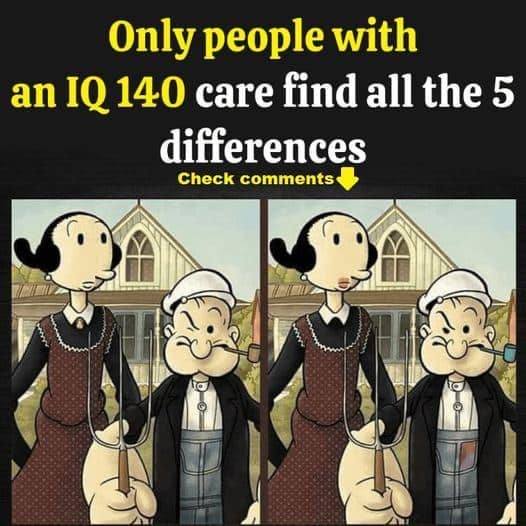
In today’s fast-paced world, sharpening your cognitive skills isn’t just a bonus — it’s essential. With the constant barrage of information and multitasking demands, maintaining clarity, focus, and mental agility can set you apart personally and professionally. But what if you could train your brain to operate more efficiently, think more clearly, and even spot patterns and connections others miss? Welcome to the world of cognitive distinction — a practice that empowers you to enhance your mental prowess and unlock your brain’s true potential.
What Is Cognitive Distinction?
At its core, cognitive distinction refers to your ability to observe, identify, and interpret subtle differences in patterns, details, and information. It’s more than basic observation; it’s about perceiving nuances that escape the casual glance and understanding complexities hidden beneath the surface.
Developing cognitive distinction strengthens critical thinking, problem-solving, creativity, and even decision-making skills. It pushes your mind to look beyond the obvious, to challenge assumptions, and to draw conclusions based on deeper insights rather than surface-level impressions.
Why Enhancing Cognitive Abilities Matters
You may wonder, “Why should I invest time in boosting my cognitive distinction?” The answer is simple: in a competitive world, sharper mental skills lead to better results. Whether you’re navigating complex projects at work, making significant life decisions, or simply trying to stay sharp as you age, your cognitive abilities directly influence your success.
Research has shown that individuals with heightened cognitive distinction excel in various fields, from science and engineering to the arts and entrepreneurship. They adapt faster, innovate more readily, and solve problems more creatively. In an era where adaptability and critical thinking are prized, sharpening your cognitive edge is more valuable than ever.
Simple Exercises to Boost Cognitive Distinction
The good news? Strengthening your cognitive abilities doesn’t require a neuroscience degree or hours of grueling work each day. With a few intentional practices, you can train your brain to notice more, think deeper, and respond smarter. Here are some easy yet powerful exercises:
1. Play Pattern Recognition Games
Games like Sudoku, chess, crossword puzzles, and certain brain-training apps are excellent for boosting pattern recognition. They require you to anticipate moves, detect subtle changes, and think several steps ahead — all skills that enhance cognitive distinction.

2. Engage in Mindful Observation
Choose a familiar environment, like your living room or your walk to work, and challenge yourself to notice five new things each time you enter. Over time, this builds a heightened sense of awareness and trains your brain to catch small details you might usually overlook.
3. Practice Lateral Thinking
Lateral thinking involves approaching problems from new angles rather than following traditional step-by-step logic. Try brainstorming exercises where you generate multiple solutions to a problem, even ones that seem outlandish at first. This boosts creative problem-solving and stretches your cognitive flexibility.
4. Learn Something New
Whether it’s picking up a new language, mastering a musical instrument, or taking up painting, learning unfamiliar skills forces your brain to form new neural connections. It’s like giving your mind a workout, expanding its ability to process and distinguish information.
5. Question Assumptions
The next time you find yourself making a snap judgment, pause. Ask yourself: “What assumptions am I making here? Could there be another explanation?” Challenging your automatic thinking patterns helps you develop a more nuanced, sophisticated view of the world.
Everyday Habits That Support a Sharp Mind
Training your brain isn’t just about what you do for 10 minutes a day — it’s also about your overall lifestyle. Here are key habits that support better cognitive function:
-
Prioritize Sleep: A rested brain processes information more efficiently and retains it better.
-
Eat Brain-Boosting Foods: Omega-3 fatty acids (found in fish), antioxidants (in berries), and healthy fats (like avocado) nourish the brain.
-
Stay Physically Active: Exercise increases blood flow to the brain, boosting mental performance.
-
Manage Stress: Chronic stress impairs memory and decision-making. Incorporating relaxation techniques like meditation can make a big difference.
-
Stay Socially Connected: Meaningful conversations challenge your thinking and keep your brain engaged.
The Bigger Picture: Cognitive Distinction Beyond Self-Improvement
While the immediate benefits of cognitive distinction — better performance, sharper thinking, and greater creativity — are incredibly valuable, there’s a broader impact as well. Developing these skills fosters empathy, as you become more attuned to subtle emotional cues in others. It promotes open-mindedness, as you learn to appreciate different perspectives and resist snap judgments. And it fuels innovation, empowering you to solve problems that matter, not just to you but to society as a whole.
In other words, cognitive distinction isn’t just about making you smarter. It’s about making you more aware, more connected, and more capable of contributing meaningfully to the world around you.
Final Thoughts
Your brain is your most powerful asset — but like any asset, it needs deliberate care and development. By investing in your cognitive distinction, you’re not just enhancing your intellectual abilities. You’re building a stronger, more agile mind that can tackle challenges, adapt to change, and thrive in a complex world.
Start small. Choose one exercise or habit from today’s list and commit to practicing it daily. Over time, you’ll notice a shift: clearer thoughts, quicker insights, and a growing confidence in your ability to navigate whatever life throws your way.
Unlock your mind’s full potential — the world is waiting for the extraordinary distinctions only you can make.





